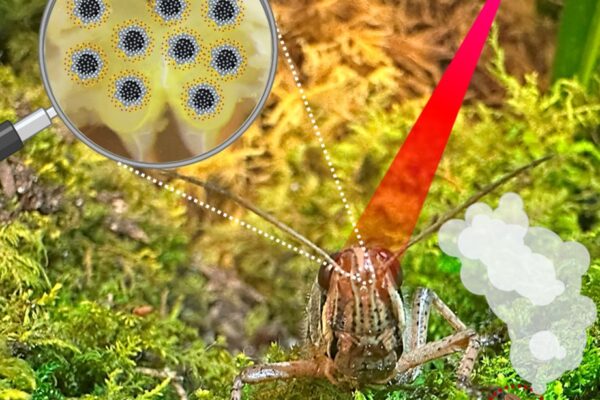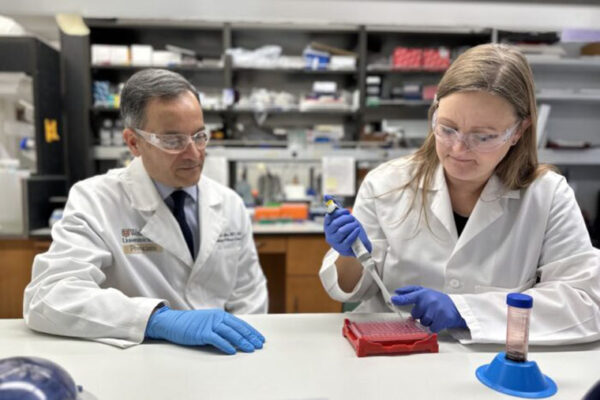Two teams of engineers led by faculty in the McKelvey School of Engineering at Washington University in St. Louis will work toward developing products to monitor drinking water quality and to detect explosives with an electronic nose with one-year $650,000 Convergence Accelerator Phase 1 grants from the National Science Foundation (NSF).
Barani Raman, a professor of biomedical engineering, and Daniel Giammar, the Walter E. Browne Professor of Environmental Engineering, will lead teams of researchers from Washington University and other institutions and entities funded under the NSF’s Convergence Accelerator program. Among the themes are real-world chemical sensing applications, bio-inspired design innovations and equitable water solutions.
Raman and his collaborators have been working for nearly two decades to harness insects’ keen sense of smell into a sensor that could be used to detect explosives and in other applications. Now, they will take it a step further by incorporating artificial intelligence (AI) and nanotechnology to create a sensor, or electronic nose, to detect explosive volatile organic compounds.
Giammar, also the director of the university’s Center for the Environment, will lead a team in developing a drinking water-quality monitoring tool based on point-of-use water filters. The research will focus on residents of disadvantaged communities served by small public water systems and those in urban locations served by large water systems with an aging infrastructure as well as those who source water from private wells with lower monitoring requirements.
Read more on the McKelvey School of Engineering website.


